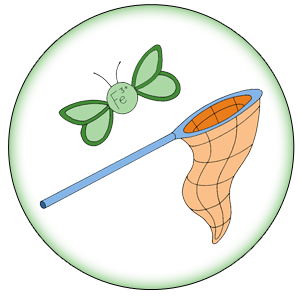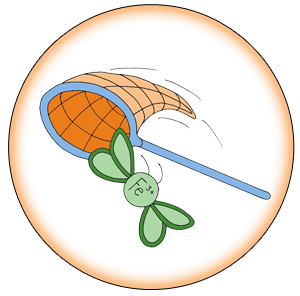Team:Edinburgh/Human Practices/Independence
From 2013.igem.org
J: What is the current view in Scotland regarding the use of genetically modified organisms (GMOs) as a part of industrial processes, especially in the context of environmental applications such as waste water treatment?
JE: I don’t actually have advanced notice of that question. It’s a very technical question and I’m not qualified to say much on it.
A: It’s completely understandable.
JE: So I’m not going to just make it up, I’d have to check what the Scottish government has said on that. If we’re talking about GM food production, for example, that is something that the Scottish government has not embraced. I think there is a debate, obviously within the public sphere, about what the benefits and disadvantages of that would be. But I think it’s fair to say that Scotland is not seeking to establish an area of expertise and comparative advantage in that area. I’m sure you could research that area further.
J: Of course, thank you. That was just an introductory question.
A: I think that most people are reluctant to use GMOs as food and in food production.
JE: Yes, but I think there are key stakeholders within society, both in Scotland and the UK, that would be very much in favour of that type of technological and scientific endeavour. I suspect, though I haven’t checked it, that the Royal Society of Edinburgh would be supportive, a lot of the scientific community would be very much in favour [of such developments], but there is a political reluctance, because of the fears that they have about safety. We could possibly return to that question later.
J: If we are to use GMOs, this might be contributing to the life sciences sector in general. Therefore, we wanted to ask you how, currently, the life sciences sector is contributing to the Scottish economy, and also what the aims are of the SNP regarding the life sciences and synthetic biology sectors. Does it want to enhance it or what kind of support would be given, if any?
JE: The Scottish government is committed to promoting sustainable economic growth across a range of sectors, of which the life sciences is one. The ambition for Scotland is to grow the sector over time. It has been identified as an area for future expansion and economic growth. The economic footprint that life sciences represent is significant in Scotland. If you take even just one section of it, the ‘pharma’ related business in Scotland, which isn’t just pharmaceuticals, but also contract research organisations that are doing clinical trials and biopharmaceutical companies who are doing early stage research. That part of the sector alone would have a significant economic footprint of, I would reckon, about 3-4 billion pounds, and around six thousand jobs, although you would need to check that. That’s just one snapshot of the economic contribution. I think, more generally, we have got medical devices, and we have got medical diagnostics. All of that together is creating a hub of activity. I’m just trying to think of some examples of that. The American pharmaceutical company, called Wyeth, which is now part of Pfizer, they made an investment into Scotland. I think, between themselves and the Scottish entrepreneurs, the Economic Development Agency in Scotland, the total investment was something like 34 million pounds. 50% of that came from Scottish enterprise, 50% came from the company. What that investment was designed to do was to bring together the NHS [National Health Service], the Universities and industry, to fund research into a number of disease therapy areas, where there is a need for new treatments. That involved the four medical schools, the Universities of Edinburgh, Glasgow, Aberdeen…
J: So the major universities in Scotland.
JE: It involved the geographical health boards in those areas, bringing all that together. As the research progressed, the universities would receive milestone payments for the research. That’s perhaps an illustration that you can do very good research but you have to be able to commercialise it. And if you’re taking products to the market then you need the industry input to do that.
J: I believe that our university is recognising it, and trying to liaise with industry.
JE: Yes, I think that the University of Edinburgh is especially good for research. There is for example ground-breaking research in stem cells and regenerative medicine, located at the Bioquarter, and the stem cell medical research centre. They are looking at developing treatments for some of the most debilitating diseases: Parkinson’s disease, multiple sclerosis, diabetes, motor neurone disease, and it’s a bench to bedside approach. What is significant is the level of expertise that is located there, in the Scottish Centre for Regenerative Medicine with 230 researchers, who are working on the stem cells and other regenerative therapies. So you’re getting a critical mass of expertise in one place. Next to that, you’ve got academics and clinicians working together.
J: So what are the plans for the future? If Scotland were to vote ‘yes’ in the next year’s referendum [for Scottish independence], is the Scottish Government going to invest further in the life sciences sector?
JE: Absolutely, this is a priority in the strategic prerogative of government. We ought to build our economy in a sustainable way. The Life sciences has been identified within that as a very important sector. The government is doing a number of things to promote Scotland as a location for inward investment. The government gets this, and as a whole is working together to achieve this ambition for Scotland. One of the ways in which we do that is we bring all of the key industry players round the table, in something called the Scottish Life Sciences Industry Advisory Board (LISAB) which is co-chaired by an industry person called John Brown, and the cabinet secretary for health and wellbeing. So it’s not just a talking shop, there are key objectives and milestones that are agreed within that framework. Having the cabinet secretary around the table makes sure the actions are followed through. One of the actions which came from that is the length of time it takes for commercial clinical trials to be approved being reduced significantly. That’s really important, if a global research company is sitting in the States deciding how to spend this money, how quickly they can get their approval for this research is important, and Scotland is able to offer a very quick turnaround on the approval times for commercial clinical trials. Also, although Scotland is a small country of 5 million people, we have 14 geographical health boards. So if you were doing multi-centre clinical trials, you would have to go through a separate process for each of the health boards, whereas now there is a single point of entry and approval. So that’s positive.
In Edinburgh, they have their own research and innovation company, which helps to spin out companies from university, which has a very impressive success rate. For example, since 1969 the university has created more than 262 spin out companies. Now that’s an impressive number, but the real test is whether those companies have been able to sustain the business, you can start up a company and then it doesn’t fly, for whatever reason. The success rate has been 81% of those companies. I was surprised when I saw those figures; I thought that there would be a much higher attrition or failure rate. But 81% are still trading. Of that 81%, 89% are still in Scotland.
J: So Scotland is providing quite a good base for setting up business.
A: We heard from academics at the University that there was a feeling that if Scotland became independent people would lose funding which was coming from the UK.
JE: Let me address that point. The issue is that Scotland punches above its weight in terms of scientific research, and citations in scientific papers for a country of our size. At the moment Scotland gets more than our population share from the UK research funding pots. So if we think about the Medical Research Council, the Bio-Technological Council, the suggestion is that if Scotland were independent we would no longer be eligible for those. The response is that the Scottish government is absolutely working on this to make sure that that research funding is sustained after independence. We think that it would still be attractive. People want to collaborate across borders, be that within the UK or within Europe, there are also European funding pots that Scottish institutions are able to access. We will have a more definitive response on that when the government publishes its white paper for the referendum, around November time. We will need to put the reassurances in place, and the government has appointed the former principles of one of the Universities in Scotland to look at that.
A: Scotland has one of the best Universities in the world; do you think that people would still be attracted to come to Scotland if it weren’t part of the UK?
JE: I think that people want to do good, high quality research, and those opportunities exist in Scotland. It is necessary to ensure that the universities are funded properly, and that would be a priority of the Scottish government, but provided that’s done, the universities will continue to survive and thrive under independence, I’ve absolutely no doubt about that.
J: From our discussions with academics, we felt that they were not certain about their position post-independence.
JE: The concerns are absolutely legitimate, I’m absolutely confident that the Scottish government will be able to provide the reassurance that the people seek, because it’s in our interest to do that. At the end of the day, if you’ve got the fiscal levers, if you’re in control of your own finances then you can then determine what your priorities are, and there’s absolutely no question that higher education would be a priority for Scotland, and life sciences research within that. We would find the resources to match the current funding, and I think over time to exceed the level of funding. Because that’s where our comparative advantage as a country is going to be, in key sectors such as Life Sciences. One of the things that’s great is that we’re attracting some of the best brains from across the world to come and study in Scotland and then to go on and work in important research.
J: Yes, our entire academic group in our School of Biological Sciences is very international; researchers are coming from all over the world to work here.
JE: The links that have been built up over many years within the UK, those will continue, professional cross fertilization of ideas and research is something everybody wants. Scotland and England and other countries within the UK will continue to cooperate, what we are seeking to do is to create a new institutional framework, so the MPs from Scotland who currently go to Westminster would withdraw, and the Scottish parliament would have responsibility over the areas that are currently reserved for Westminster parliament. That’s not to say that the governments would not work together, and we’ve already got an embryonic system, if you think back to the Northern Ireland peace process, one of the things that came out of that was the Council of the Isles, or the British-Irish council, which has it’s secretariat in Edinburgh. It brings together the UK Government, the Republic of Ireland, the devolved administrations of Scotland, Wales and Northern Ireland, and the crown dependencies of Guernsey, Jersey and the Isle of Man, which have very small populations, yet sit at the table with the devolved administrations and the UK government as equals. It’s similar to the European Union (EU) inter-governmental system, the big decisions are taken in the council, by the member state governments, and they each have permanent representation in Brussels, and civil servants who are working there all the time. The UK has about 200 civil servants looking after its interests in the EU, maybe not as much as that, Ireland is a small country around a tenth the size of the UK, maybe less, it has about 100 civil servants working in Europe. What I’m saying is that there are other models of co-operation that don’t involve you having to send your MPs to Westminster, where we are always outvoted, and where we get governments we didn’t elect.
A: How would it work with Scotland becoming independent and having to join the EU again?
JE: That has been an issue of some contention; some people have said that because we would be an applicant nation, we would have to take our place at the end of the queue. I don’t think that that is realistic. Scotland has been a member, albeit as part of a larger member state, for 40 years, the idea that we would be rejected is… it’s actually very difficult the leave the EU, even if you want to, as Greenland found out, so there is no precedent for expulsion of a member state, or part of a member state. The truth is, yes, we would have to negotiate our terms of entry, but we would be doing that from within the EU. The problem is that we are in an independence debate where no side want to give the impression that this will be very difficult, that there will be obstacles and barriers to be overcome. The reality is that Scotland has two very important negotiating or bargaining counters, one is fishing, one is energy. Our contribution to energy supply in Europe is significant because of North Sea oil and gas, and the fishing grounds that Scotland has which are currently part of the common fisheries policy, mean that, for example, Spanish fishing can fish pretty much right up to the Scottish coastline. They’re not going to want to sacrifice that, and that’s why you won’t find the Spanish Government saying anything against Scottish Independence, despite the fact that they have their own independence movements that they’re keen not to push. They’re not taking a formal position before the vote, and that’s exactly as it should be.
What’s really positive is that the Scottish and UK governments have agreed to what’s called the ‘Edinburgh Agreement’, so that means that the legal process for having the referendum has been agreed between the UK and Scottish governments, so that the decision will not be questioned by either side, and part of that agreement says that if Scotland votes ‘yes’, then the two governments will sit down and agree on an orderly transition from the current arrangements to allow Scotland to become an independent country.
[Going back to the issue of post-independence access to UK research funding], the argument that the Scottish government is putting forward is that Universities will continue to be able to access UK funding following independence. Professor Sir Ian Diamond, who’s the principal of Aberdeen University, has said, and I quote, that ‘there would be no question that Scotland could remain part of research councils within the UK should Scots vote yes in next year’s independence referendum’, and by Scots we mean people who live and work in Scotland, whether they are ethnic Scots or not is not important.
A: Yes, though it wouldn’t feel right for me to vote for someone else’s independence.
JE: Well I think that you’re entitled to vote; you should weigh up the arguments for and against and come to a position. My definition of a Scot, because I am sometimes asked on the doorstep as an SNP candidate why an English person should vote SNP, is that if you live in Scotland, if you work here and pay your taxes, as far as I’m concerned you’re as Scottish as I am, and you’re as entitled to have a say on the future of Scotland as anyone else who lives hear.
J: Very opened minded.
JE: It is, its civic nationalism. So going back to research, Professor Diamond is also a former chairman of the Research Councils UK Executive group, which means that he comes at this issue with a background of expertise and knowledge and understanding of the issues, the reason that I’m not able to be as definitive as I’d like is that his report has not yet been published. But once that has been published it will inform the white paper. He’s also pointed out that there’s a precedent for single research areas across national boundaries, so this is absolutely doable, if the will exists to do it. And it’s in the interests of researchers south of the border as well, to access the good networks of research and collaboration. There’s reference to a single research area that operates across Scandinavia, so there is a model there that Scotland can seek to emulate. And also Universities are currently involved in research partnerships at Scottish, UK, European and International levels.
J: Thank you very much for your time.
JE: Thank you, and good luck with your competition.

| 
| | | | 
|
| This iGEM team has been funded by the MSD Scottish Life Sciences Fund. The opinions expressed by this iGEM team are those of the team members and do not necessarily represent those of MSD | |||||
 "
"


















